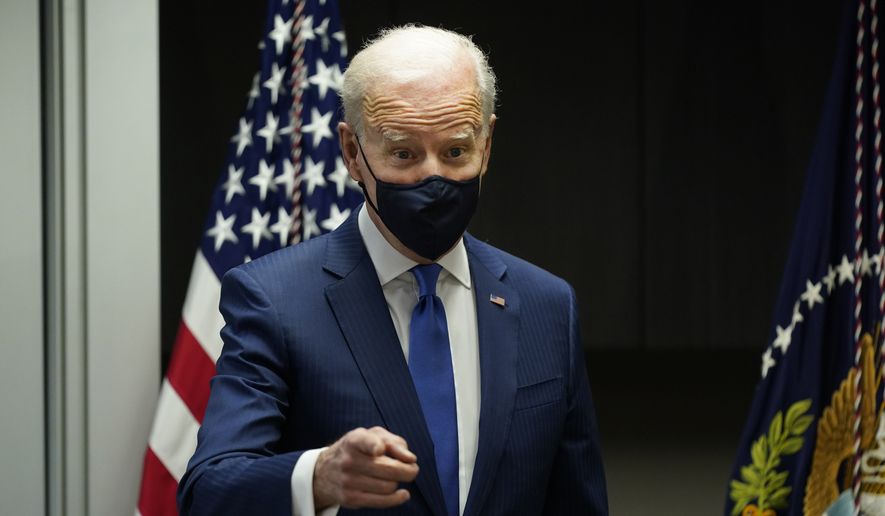Twelve states filed a lawsuit Monday challenging President Biden’s day-one climate-change executive order, saying he lacked the authority to enact what they decried as a massive regulatory expansion that would kill jobs, jack up prices and cripple the economy.
Led by Missouri Attorney General Eric Schmitt, the 12 Republican attorneys general zeroed in on the section in the Jan. 20 order in which Mr. Biden reestablished the Interagency Working Group on the Social Cost of Greenhouse Gases and directed it to attach a value to emissions reductions.
The group gave an initial estimate of $9.5 trillion for the cost of U.S. carbon dioxide, methane and nitrous oxide emissions using figures from 2019-20, according to the lawsuit, but the prosecutors argued that the administration “did not have the authority to issue binding numbers.”
“In practice, President Biden’s order directs federal agencies to use this enormous figure to justify an equally enormous expansion of federal regulatory power that will intrude into every aspect of Americans’ lives — from their cars, to their refrigerators and homes, to their grocery and electric bills,” said the 46-page document.
The lawsuit against the president was filed in U.S. District Court for the Eastern District of Missouri. The other states on the filing were Arkansas, Arizona, Indiana, Kansas, Montana, Nebraska, Ohio, Oklahoma, South Carolina, Tennessee and Utah.
“If the executive order stands, it will inflict hundreds of billions or trillions of dollars of damage to the U.S. economy for decades to come,” the lawsuit said. “It will destroy jobs, stifle energy production, strangle America’s energy independence, suppress agriculture, deter innovation and impoverish working families.”
Mr. Biden has made combating climate change a priority of his administration, directing agencies in the executive order “to immediately commence work to confront the climate crisis” by proposing new regulations and reversing the Trump administration’s actions.
Mr. Schmitt said the order would take a toll on “nearly every aspect of the economy and Missouri households.”
“Under President Biden’s executive order, which he didn’t have the authority to enact, these hard-working Missourians who have lived and worked this land for generations could be left in the dust,” said Mr. Schmitt. “From higher energy bills to lost jobs, this massive expansion of federal regulatory power has the potential to impact nearly every household in this state.”
The lawsuit argues that the order lacked the statutory authorization to form the working group, and that only Congress may assign monetary values to emissions.
TODAY, Missouri Attorney General Eric Schmitt led a 12 state coalition in filing suit against President Biden’s administration over the massive expansion of federal regulations through executive order.
— Attorney General Eric Schmitt (@AGEricSchmitt) March 8, 2021
More on the suit —> https://t.co/TRXuX5hN4D #MOLeg pic.twitter.com/eFTixi6Vym
The creation of a working group without public notice or comment also violated the Administrative Procedure Act, the attorneys general said, adding that proper weight was not given to the benefits of “affordable and reliable domestic energy and agricultural production.”
“The potential regulatory impact of such numbers is enormous,” said the filing. “These numbers are high enough to justify massive increases in regulatory restrictions on agricultural practices, energy production, energy use, or any other economic activity that results in the emission of such gases.”
Mr. Biden also signed orders on his first day to rejoin the Paris climate accord and cancel the Keystone XL pipeline cross-border permit, drawing cheers from environmental groups.
“What an incredible breath of fresh air that President Biden is already delivering on his promise to prioritize immediate executive action to tackle the climate crisis on day one,” said Sierra Club Legislative Director Melinda Pierce in a Jan. 20 statement.
• Valerie Richardson can be reached at vrichardson@washingtontimes.com.




Please read our comment policy before commenting.